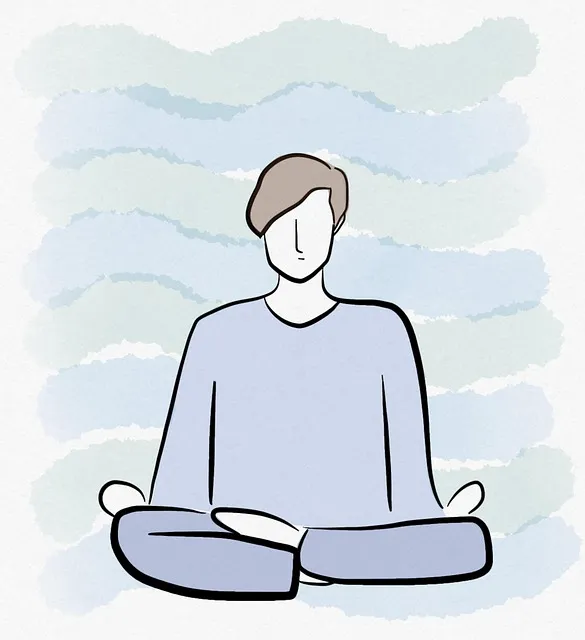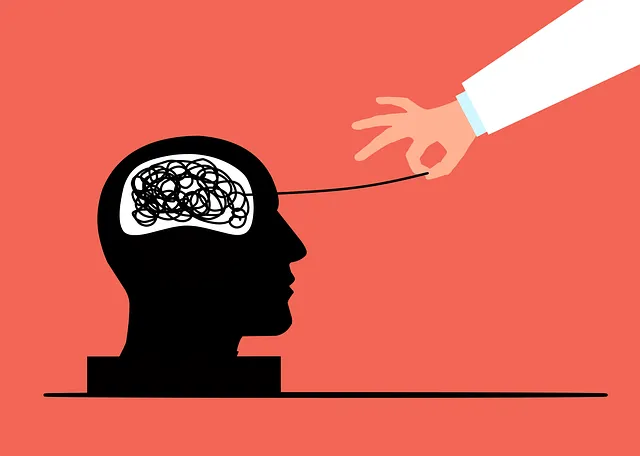Creating a self-care routine centered on sleep, nutrition, movement, mindfulness and emotional regulation is key to enhancing mental wellness, as emphasized by Kaiser's inpatient mental health program in Aurora. This routine includes strategies like coaching, journaling, therapy, counseling, support groups and techniques like meditation, breathing exercises and mindful activities for stress management and coping with triggers. Inpatient care offers intensive stabilization services for severe acute crises, combining these practices to foster resilience and long-term mental health management.
Developing a robust mental wellness self-care routine is essential for maintaining overall well-being. This article guides you through creating a personalized routine by understanding your unique mental wellness needs, from reflecting on stressors and triggers to incorporating mindfulness and seeking professional help when necessary. We explore the building blocks of self-care, including sleep, nutrition, and movement, and delve into accessing support systems, even considering inpatient care options like Kaiser’s services in Aurora.
- Understanding Your Mental Wellness Needs: Reflecting on Stressors and Triggers
- Building Blocks of a Self-Care Routine: Prioritizing Sleep, Nutrition, and Movement
- Incorporating Mindfulness and Emotional Regulation Techniques
- Accessing Support Systems and Professional Help: When to Seek Inpatient Care, Like Kaiser's Services in Aurora
Understanding Your Mental Wellness Needs: Reflecting on Stressors and Triggers

Understanding your mental wellness needs is a crucial first step in developing an effective self-care routine. Reflecting on stressors and triggers unique to your life can provide valuable insights into what supports and sustains your well-being, and where potential improvements might be made.
If you’re based in Aurora and considering specialized support, services like those offered by Kaiser’s inpatient mental health program could be a significant resource for intensive care and stabilization. However, it’s also important to explore accessible self-care strategies tailored to your personal experience, whether managing stress, anxiety relief, or coping with specific triggers. Mental wellness coaching programs and journaling exercises can offer guidance in navigating these complexities and fostering positive mental health practices.
Building Blocks of a Self-Care Routine: Prioritizing Sleep, Nutrition, and Movement

Developing a robust self-care routine is paramount for maintaining mental wellness, and it starts with laying a strong foundation in three key areas: sleep, nutrition, and movement. These building blocks are essential for cultivating resilience and fostering overall well-being. Prioritizing quality sleep ensures your mind and body can rest, rejuvenate, and prepare for the challenges of daily life.
Nutrition plays a significant role in mental health, as certain foods can impact mood and cognitive function. Incorporating balanced meals rich in nutrients supports not just physical health but also enhances mental clarity and stability. Moreover, engaging in regular movement, whether it’s through exercise, yoga, or even brisk walks, boosts endorphins and reduces stress hormones, providing a powerful Mental Wellness Journaling Exercise Guidance for cultivating self-awareness and resilience. At Kaiser’s inpatient mental health facilities in Aurora, for instance, these principles are often integrated into therapeutic routines to promote holistic healing.
Incorporating Mindfulness and Emotional Regulation Techniques

Incorporating mindfulness and emotional regulation techniques into your self-care routine is a powerful way to nurture your mental wellness, especially when seeking support from resources like Kaiser’s inpatient mental health services in Aurora. These practices are essential tools for developing emotional intelligence and enhancing stress reduction methods. By cultivating mindfulness, you can learn to stay present and aware of your thoughts and feelings without judgment, fostering a deeper understanding of your inner world.
This awareness allows for better emotional regulation, enabling individuals to manage their reactions to challenging situations. Techniques such as meditation, deep breathing exercises, or mindful walking can help reduce stress and anxiety by calming the mind and body. Additionally, these practices encourage the development of inner strength, providing a sense of resilience when navigating life’s ups and downs.
Accessing Support Systems and Professional Help: When to Seek Inpatient Care, Like Kaiser's Services in Aurora

When navigating mental wellness challenges, accessing support systems and professional help is crucial for coping with difficult emotions and developing effective coping skills. It’s important to remember that seeking assistance doesn’t imply weakness; instead, it demonstrates strength in prioritizing one’s mental health. Many individuals find solace through therapy, counseling, or support groups, where they can learn valuable crisis intervention guidance and mood management techniques.
In the case of severe or acute mental health crises, inpatient care can be a vital option. Organizations like Kaiser in Aurora offer specialized services designed to provide intensive treatment and round-the-clock support for individuals in need. These programs are tailored to help patients stabilize, regain control, and develop coping strategies for managing their mental health effectively over the long term.
Developing a personalized mental wellness self-care routine is a proactive step towards improving overall well-being. By understanding your unique needs and incorporating essential practices like prioritizing sleep, healthy nutrition, and movement, you can effectively manage stress and triggers. Mindfulness techniques and emotional regulation strategies further empower individuals to navigate life’s challenges. When additional support is required, accessing professional help through services like Kaiser’s inpatient care in Aurora offers specialized treatment options tailored to individual needs, ensuring a comprehensive approach to mental health management.






